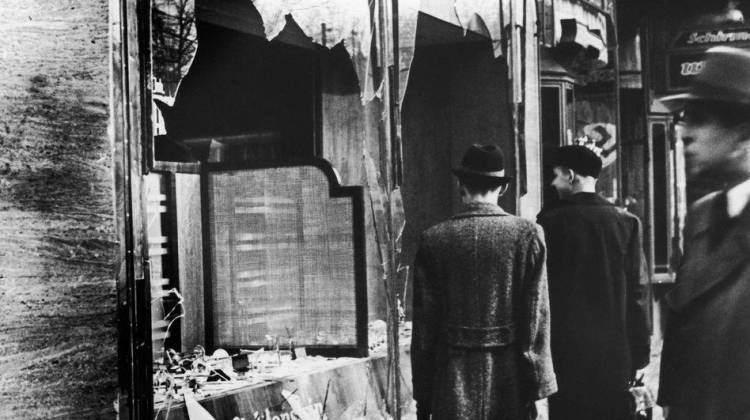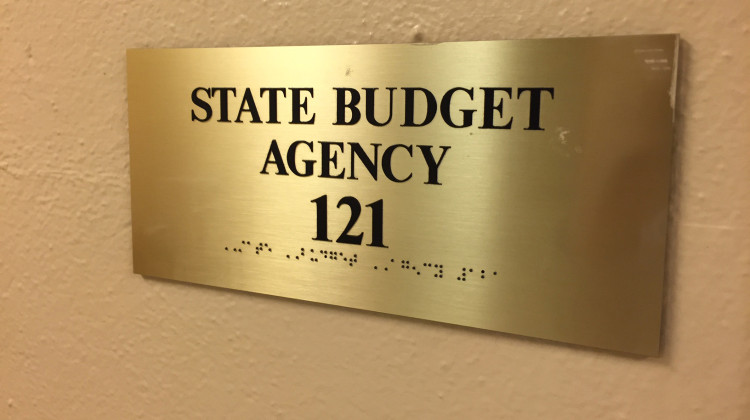On a busy street in Berlin's shabby-chic district of Kreuzberg, the gray and dirty pavement glistens with little brass cobblestones. Millions of these stones are embedded in sidewalks all over Europe. They commemorate the last address the city's Jewish residents called home before the war.
Etched into each stone is the name of an individual, a date of deportation, the name of a concentration camp and, more often than not, a date of death.
But some stones are inscribed with the word ueberlebt, meaning "survived." The name on one such stone is Margot Bendheim, the maiden name of Margot Friedlander. For the past three years, this stone is no longer a valid record of her most recent Berlin address — which lies across town.
"As a survivor, I feel that I do something for the people who cannot speak for themselves anymore," says Friedlander, who just turned 92.
After 64 years of exile in New York, Friedlander made the decision to return to her native Berlin for good. City officials welcomed her with open arms, and Friedlander was promptly given back her German citizenship.
"When I received my German citizenship, I said: 'You expect me to say thank you for it? I will not do it. Because you only give me back what you took away from me,'" she says.
Her late husband, also a German Jew, never wanted to return to Berlin, and initially, her decision to move back was met with disbelief from her New York friends. But Friedlander says America only offered her and her husband sanctuary once the war was over.
"I don't owe America anything because when I needed them, they didn't let us in," she says. "And that's why I came back to Germany. It is the country where I was born."
Sitting in her new Berlin apartment, surrounded by books and photographs of her husband, Friedlander has not forgotten how her native city gradually disowned her and how living here became untenable. She recalls the night euphemistically known as Kristallnacht — Crystal Night — the violent pogrom that saw Nazi-coordinated attacks on thousands of synagogues and Jewish businesses. She says the wanton terror and destruction of Nov. 9, 1938, came as a shock.
"I did not hear fire engines and we understood then that they didn't come because they wanted the synagogues to burn," she says. "We never thought that Germans would stand by, and not do something about it."
Friedlander's family knew then they had to leave Germany, but their attempts to emigrate failed until it was too late. Her father left without them, and her brother and mother were deported to Auschwitz, where all three eventually perished. Margot went into hiding in Berlin.
And it is because of those few courageous, gentile Germans who helped her that she felt able to return to Berlin three years ago. All the same, she remains wary of her own generation.
"I don't want them to tell me, 'We did not know.' Because this is something that I will not accept. Everybody knew something," she says. "So I keep my distance."
Instead, Friedlander spends much of her time with young Germans, visiting schools and sharing her valuable testimony. She is adamant they should not feel guilt, but a sense of responsibility. And responsibility is something the German state takes very seriously.
Stefan Redlich is spokesman for the Berlin police.
"The Berlin police protects all Jewish schools, all hospitals, all kindergartens and all synagogues in the city," he says, noting that 250 policemen stand guard in front of Jewish properties throughout the city.
But German Chancellor Angela Merkel recently said she is not proud of this fact: "I feel deep shame that there is not a single Jewish building in Germany without police protection because we still have to worry about anti-Semitic attacks."
Merkel's concerns are justified. On last year's Kristallnacht anniversary, vandals in the northeastern city of Greifswald removed a number of cobblestone memorials.
Seventy-five years on, though, Germans refuse to stand by and watch. To mark this anniversary, they are taking to the streets — chamois leather in hand — to polish the brief, brass biographies that serve as a daily reminder of lives cut short by the Holocaust.
9(MDEwMDc1MzM3MDEzNDczOTA0MDc1MzViMQ001))
 DONATE
DONATE








 View More Programs
View More Programs

 Support WFYI. We can't do it without you.
Support WFYI. We can't do it without you.